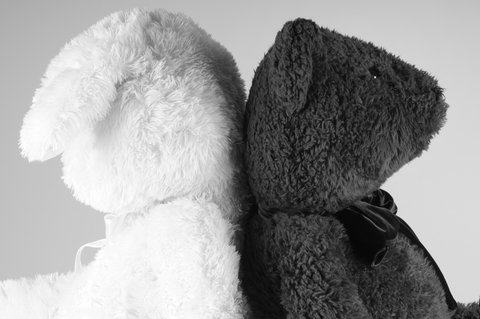Race relations are essentially exercises in imagination.~ Bill Bradley, former U.S. Senator and NBA player, New York Knicks
My mind paused. Reflection was followed by synapses firing, connecting thoughts, images, memories, and emotions from various parts of my life and brain.
The Paradox of Understanding Race Relations
To understand race and race relations means simultaneously standing on opposing ends of a spectrum.

Being aware of race, is to know that I will never fully know, understand or feel what it’s like to experience life from The Other’s perspective.
To understand race means engaging in acts of empathic imagination, even though I will never really know.
Paradox is the place where empathic imagination and the inability to know meet. It’s where they become one thing.
Micro Events in Race Relations
I am fortunate for the opportunity to have stood in that place fifteen years ago, when…
Robert Hales, Human Resource Director, Office of Naval Research, spoke of a daily event in his life.
Each day on his way to and from work, Robert drove through a tollbooth and handed change to the tollbooth collector. Sometimes the collector held his hand palm upward. Each time this happened, Robert wondered whether the white collector was trying to avoid touching Robert’s black skin.
That story, a micro-event in Robert Hale’s daily life, remains by my side.
Never in my life have I been I aware of my whiteness, or wondered how someone was responding to my race, as I passed through a tollbooth. There have likely been many such non-events in my life, that are anything but non-events for Robert.
As the mother of a white child, I didn’t worry that my son might encounter insulting or dangerous acts of racism when he left the house. I didn’t worry that the police might stop him, question him, possibly harass and hurt him because of his whiteness. I’ve heard from mother’s of young black men who do worry about such things – understandably so.
I remembered riding in the green MG convertible of an African American friend when we, but mostly he, was stopped by the police. Why? He was driving in the upper middle class mostly white suburb, where he rented a house with law school friends. He may have forgotten to use his blinker while making a turn. Maybe. As a white woman, I’ve never been stopped for almost no reason while driving through an upper middle class mostly white suburb, no matter what car I drove.
I never wondered whether people held lower expectations of me because I am a white woman. A young black mother and college student once told me how insulting it was when college professors offered that she might not complete assignments on time, or to normal standards. With a mental wink they “understood” that as a single black mother she was struggling to support and raise her children while trying to better herself. As a white woman who returned to school when her son was two, I was never on the receiving end of this insulting wink of lowered expectations.
How to Exercise Empathic Imagination
Margaret Heffernan, in Willful Acts of Blindness tells the story of two siblings. The younger sister had spina bifida and the older brother often pushed her wheelchair. From this perspective, standing right behind her, he saw how people viewed his sister. He knew they saw only her misshapen body, not who she really was. This empathic experience led him to wonder “If people are missing her, what might I be missing when I see them?” He sees his own seeing and his partial blindness.
Empathic imagination asks the question “What am I missing?” Empathic imagination assumes there is something just outside our view. Empathic imagination calls us to ask what we are not seeing and to do our best to make it visible. Understanding race and race relations calls for empathic imagination and these three steps.
- Assume you are missing aspects of The Other and his/her experience.
- Ask “What am I missing?”
- Make it visible.
You can read a review and order Willful Blindness here.


